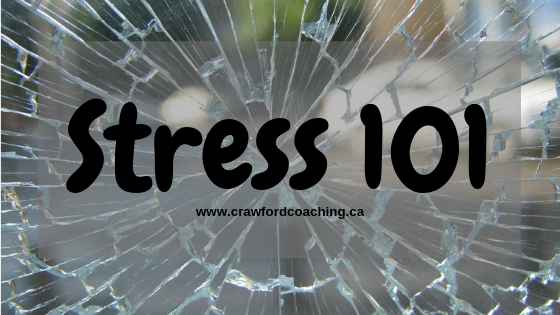
When you feel stressed, what physical symptoms do you usually feel? You likely feel like your heart is beating faster, your muscles feel tense, your breathing is heavier, your stomach will feel fluttery, your thoughts may be racing, etc. Now, what physical symptoms do you feel when you’re excited? You may notice that they’re physiologically the same. It’s your perception of the situation that determines whether it’s positive or negative.
Positive stress, known as eustress, can be highly motivating. It can help you perform at your best for a big game/recital or a job interview. When the challenge of the task matches your skill level, you can even experience a flow-like state. Others may know this as being “in the zone.” It’s when you’re completely absorbed in an activity and you become unaware of time passing. This type of stress has been linked to optimal wellbeing.
However, negative stress, known as distress, is the kind we want to minimize. Chronic stress can lead to many adverse health effects, such as obesity, high blood pressure, diabetes, heart disease, anxiety and depression.
There are adaptive and maladaptive methods to manage stress. Adaptive strategies reduce stress and are positive or neutral to other health outcomes. Adaptive strategies involve either problem-solving ways to remove or reduce the stressor (time management, social support) or change the way you feel about a given stressor (distraction, journaling). Maladaptive ways involve activities that can be detrimental to your health in the long run, such as: drinking, smoking and overeating. They may help in the moment but will likely just complicate things later on, especially if they become your go-to coping strategy.
I wish I could tell you there’s a magic solution to dealing with stress but there isn’t. And what works for others may not necessarily work for you. Apart from the textbook advice of getting adequate sleep and exercise, eating regular, healthy meals and practicing relaxation techniques, I would like to add finding the time to do something fun. Do something you absolutely love to do and make time to fit it in regularly. Here are a few suggestions worth exploring:
- Have mini dance parties in your kitchen.
- Practice an instrument.
- Work on a puzzle.
- Write in your journal.
- Go for a walk.
- Lay in the grass and find animals in the clouds or stare at the stars.
- Read a book.
- Build lego castles with your kids.
- Play a videogame.
- Run around with your dog.
If you have no idea what fun looks like to you anymore because you’ve gotten so wrapped up in life and responsibilities, take some time to think about what you enjoyed doing as a kid and start there. I realize we have busy lives but finding a little time for yourself and the things you enjoy can rejuvenate your spirit and bring some energy back to the regular routines of life.
I believe we as a society are so stressed because we’ve forgotten how to be still and enjoy the things we used to get lost in. I think if we’re able to get back to that, we’ll live longer and healthier lives.
How do you deal with stress? What is something fun you like to do?
Let me know in the comments!
Feeling stressed? Get your free guide to helpful stress busting strategies here.


I’m working on improving my insomnia. My mind races and I become restless as my thoughts jump from what I need to do to achieve my goals, family and everything else in between. Eventually stress began to not only affect my mental health but my spiritual and physical health. I have learned and am learning to seek God when feeling stress and also eliminate things that are not fruitful or beneficial in my life.
LikeLiked by 1 person
Hi Kim,
Insomnia can definitely be a cause and symptom of stress in one’s life. Would you be interested if I shared strategies that I have used when my mind races before bed?
LikeLike
Yes, please…do share!
LikeLike
I usually do a brain dump. I write out everything on my to-do list and any worries that are bothering me. This way I can worry less as there’s nothing I can do about it at the time but I also won’t forget anything and can work on it again the following day.
I also do diaphragm breathing to help calm my body. My psychology professor recommended it. We do this naturally when we’re lying down. Deep breath in, hold at the top and long slow breath out. Your stomach should expand on the in breath and contract on the out breath.
If you decide to try either, please let me know how it goes! There’s a lot of trial and error when it comes to finding what works best for you when it comes to managing stress.
Cheers,
Sami
LikeLike
Thanks so much of these tips Sami! I have done something similar to the brain dump by keeping a journal. I haven’t been consistent. My goal is to write my feelings and thoughts once a day. I’ve tried the deep breathing after reading about it in a article and unfortunately that hasn’t helped. *Sighs*
LikeLike
Honestly, the deep breathing never really helped me much either until more recently. I’m not really sure why that changed but definitely appreciate that it has. Maybe it’s just the practice.
Keep trying new things. You’re bound to find what works for you. You may want to revisit some old ones too, just in case.
LikeLike